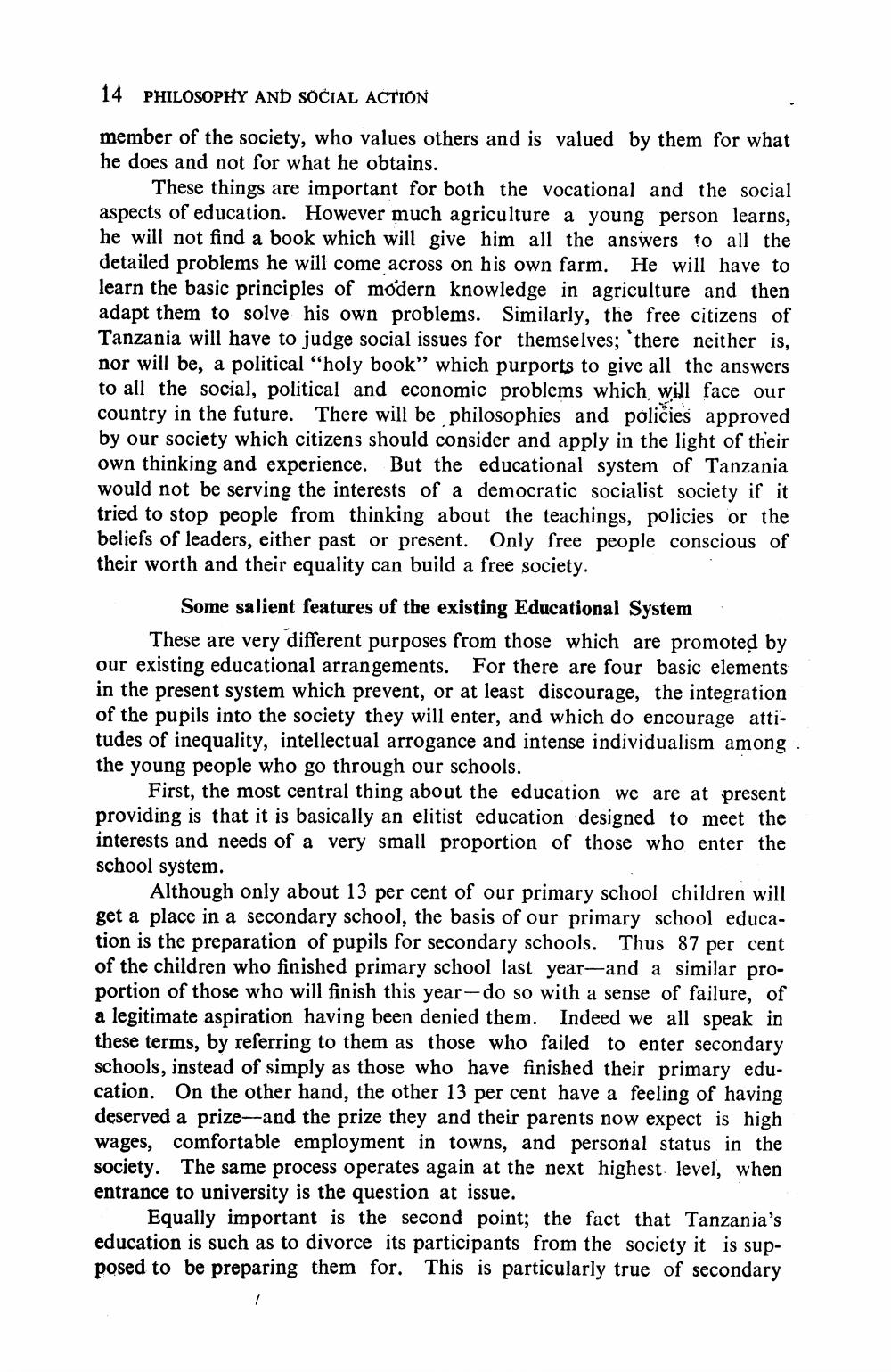Book Title: Education For Self Reliance Author(s): Julius K Nyerere Publisher: Julius K Nyerere View full book textPage 6
________________ 14 PHILOSOPHY AND SOCIAL ACTION member of the society, who values others and is valued by them for what he does and not for what he obtains. These things are important for both the vocational and the social aspects of education. However much agriculture a young person learns, he will not find a book which will give him all the answers to all the detailed problems he will come across on his own farm. He will have to learn the basic principles of modern knowledge in agriculture and then adapt them to solve his own problems. Similarly, the free citizens of Tanzania will have to judge social issues for themselves; 'there neither is, nor will be, a political "holy book" which purports to give all the answers to all the social, political and economic problems which will face our country in the future. There will be philosophies and policies approved by our society which citizens should consider and apply in the light of their own thinking and experience. But the educational system of Tanzania would not be serving the interests of a democratic socialist society if it tried to stop people from thinking about the teachings, policies or the beliefs of leaders, either past or present. Only free people conscious of their worth and their equality can build a free society. Some salient features of the existing Educational System These are very different purposes from those which are promoted by our existing educational arrangements. For there are four basic elements in the present system which prevent, or at least discourage, the integration of the pupils into the society they will enter, and which do encourage attitudes of inequality, intellectual arrogance and intense individualism among the young people who go through our schools. First, the most central thing about the education we are at present providing is that it is basically an elitist education designed to meet the interests and needs of a very small proportion of those who enter the school system. Although only about 13 per cent of our primary school children will get a place in a secondary school, the basis of our primary school education is the preparation of pupils for secondary schools. Thus 87 per cent of the children who finished primary school last year-and a similar proportion of those who will finish this year-do so with a sense of failure, of a legitimate aspiration having been denied them. Indeed we all speak in these terms, by referring to them as those who failed to enter secondary schools, instead of simply as those who have finished their primary education. On the other hand, the other 13 per cent have a feeling of having deserved a prize--and the prize they and their parents now expect is high wages, comfortable employment in towns, and personal status in the society. The same process operates again at the next highest level, when entrance to university is the question at issue. Equally important is the second point; the fact that Tanzania's education is such as to divorce its participants from the society it is supposed to be preparing them for. This is particularly true of secondaryPage Navigation
1 ... 4 5 6 7 8 9 10 11 12 13 14 15 16 17 18
